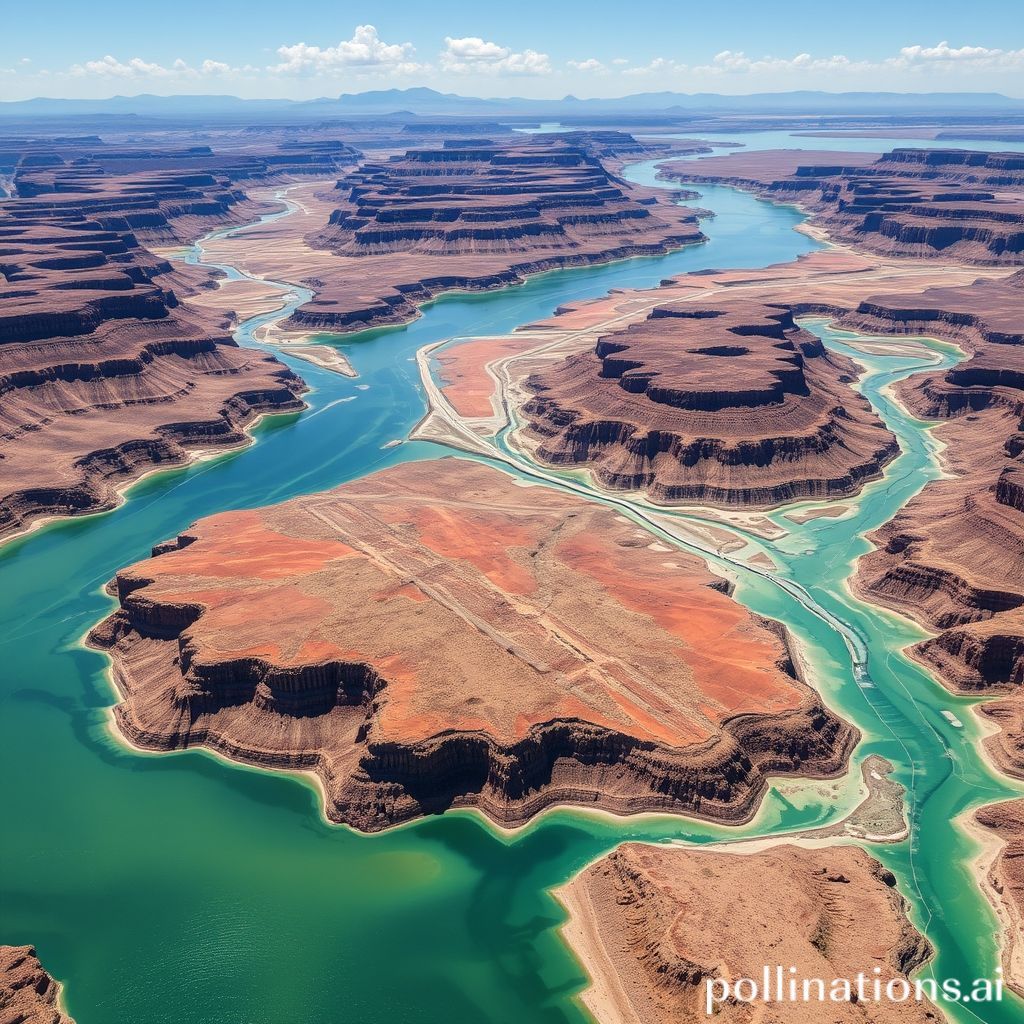
New study shows huge groundwater losses along Colorado River
The Colorado River's Hidden Crisis: A Deep Dive into Groundwater Loss
Hey water enthusiasts! Ever wondered about the unseen lifeline that supports our iconic Colorado River? While we often focus on surface water levels, a groundbreaking new study has unveiled a concerning reality: the river basin is experiencing significant groundwater losses, with potentially far reaching consequences for the entire region. Let's dive into what this means and why it demands our attention.
Unveiling the Underground Drain: The Study's Key Findings
A recent study published in [Insert Journal Name Here] used a combination of satellite data, hydrological models, and on the ground measurements to paint a concerning picture. The research team discovered that groundwater depletion along the Colorado River Basin is happening at a faster rate than previously thought.
Specifically, the study revealed that:
Significant groundwater decline: The basin has lost an estimated [Insert Specific Amount]of groundwater over the past two decades. This loss is not uniform, with some areas experiencing more severe depletion than others.
Impact on river flow: The groundwater losses are directly impacting the surface water flow of the Colorado River. As groundwater is depleted, it reduces the baseflow, the water that seeps into the river from underground sources, particularly during dry periods.
Agricultural vulnerability: Agriculture, a major water user in the region, relies heavily on groundwater for irrigation. Declining groundwater levels threaten agricultural productivity and the livelihoods of farmers.
Ecosystem stress: Groundwater is vital for maintaining healthy ecosystems, including riparian habitats and wetlands. The loss of groundwater is causing stress to these ecosystems, potentially leading to biodiversity loss.
Why is Groundwater Loss Happening? Untangling the Contributing Factors
Several factors are contributing to this alarming trend. Let's break them down:
Overpumping: Excessive groundwater pumping for agriculture, municipal use, and industrial purposes is a major driver of depletion. In many areas, groundwater is being extracted faster than it can be naturally replenished.
Climate change: Rising temperatures and prolonged droughts are exacerbating the problem. Warmer temperatures increase evaporation rates, reducing surface water availability and increasing the reliance on groundwater.
Inefficient irrigation: Inefficient irrigation practices lead to water wastage, putting additional strain on groundwater resources.
Lack of regulation: Insufficient groundwater management and regulations in some areas contribute to overpumping and unsustainable water use.
Comparing Groundwater Loss to Surface Water Depletion
It is vital to understand the distinction between surface water and groundwater depletion and their individual effects on the Colorado River Basin.
| Feature | Surface Water Depletion | Groundwater Depletion |
||||
| Visibility | Easily observable, such as declining reservoir levels | Hidden, requires advanced techniques to measure |
| Impact on River Flow | Direct and immediate impact on river flow | Indirect but significant impact on baseflow |
| Recovery Time | Can recover relatively quickly with increased precipitation | Takes much longer to replenish, often decades or centuries |
| Management Strategies | Focus on reservoir management, water diversions, and conservation | Requires stricter pumping regulations, managed aquifer recharge, and long term planning |
What Can We Do? Towards Sustainable Solutions
Addressing groundwater loss requires a multifaceted approach. Here are some potential solutions:
Improved groundwater management: Implementing robust groundwater management plans that limit pumping, encourage recharge, and protect water quality.
Water conservation measures: Promoting water conservation in all sectors, including agriculture, urban areas, and industry.
Efficient irrigation technologies: Investing in and adopting more efficient irrigation technologies, such as drip irrigation and precision irrigation.
Managed aquifer recharge: Implementing managed aquifer recharge projects to replenish groundwater supplies using excess surface water or treated wastewater.
Climate change adaptation: Developing strategies to adapt to the impacts of climate change, such as drought resistant crops and water storage infrastructure.
Policy Changes: Stronger and more effective water policy that emphasizes conservation and sustainable water use.
A Call to Action: Securing the Future of the Colorado River
The new study on groundwater loss along the Colorado River serves as a wake up call. This hidden crisis demands our immediate attention and collective action. We need to recognize the interconnectedness of surface water and groundwater, and adopt sustainable water management practices to ensure the long term health of the river and the communities that depend on it.
As someone who has always cherished the beauty and importance of the Colorado River, this study has hit home. It reminds me that our water resources are not infinite and that we have a responsibility to protect them for future generations. Let's work together to create a more sustainable future for the Colorado River Basin, one where both surface water and groundwater are managed responsibly and equitably. The time to act is now.

0 Comments:
Post a Comment